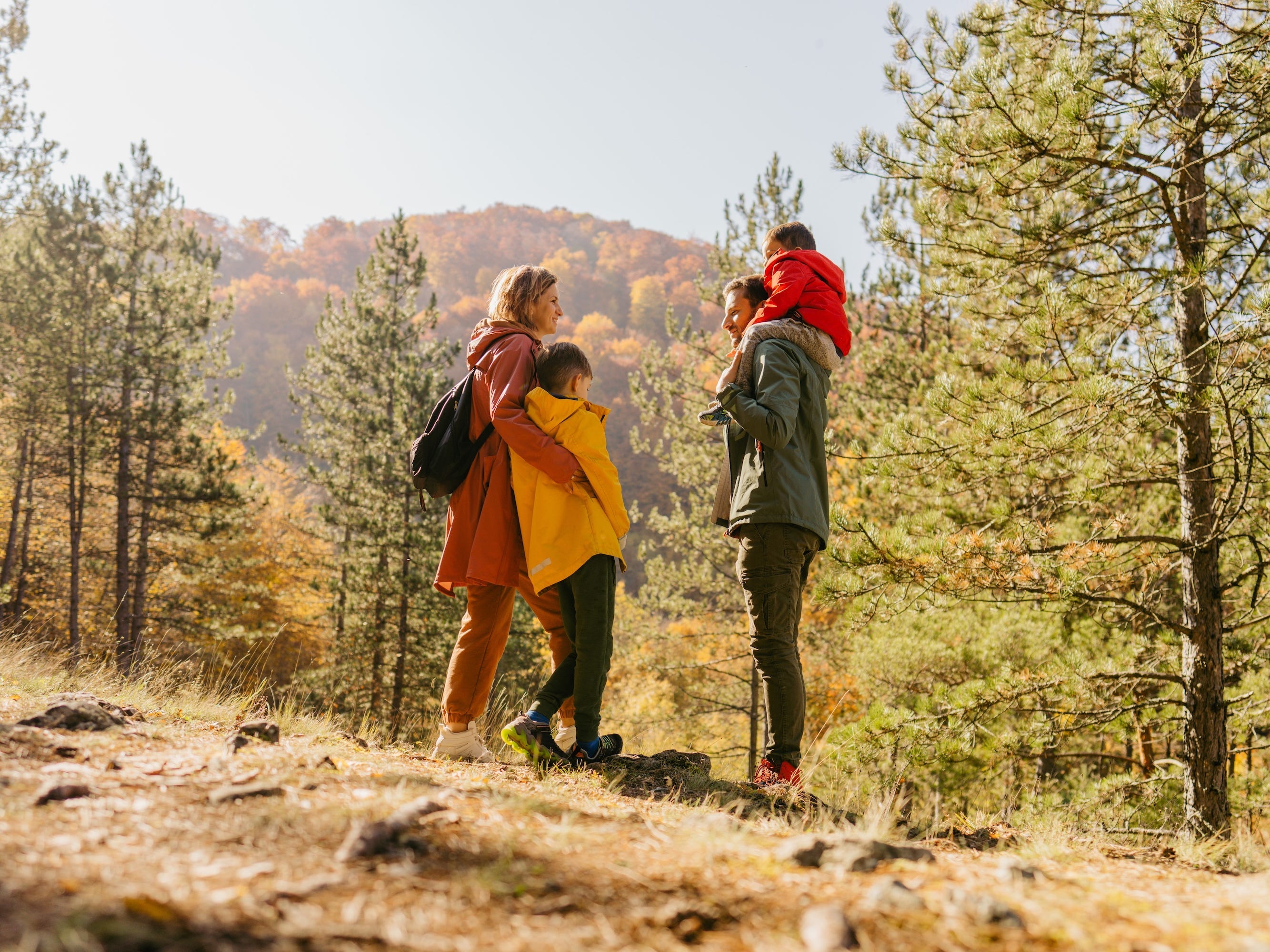
AleksandarNakic/Getty Images
In November 2017, my wife and I did the unthinkable: We packed up our lives in Calgary, Alberta — a bustling metropolis known for its glass skyscrapers and cowboy hats — and moved to Nelson, British Columbia, a sleepy mountain town of about 11,000 people, where you’re more likely to run into someone carrying a yoga mat than a briefcase.
At the time, we were both juggling high-stress office jobs, had two kids under 3, and spent way too much of our lives trapped in bumper-to-bumper hell. We were burned out, disconnected, and caught in the relentless churn of city life.
When we finally paused to ask ourselves why we were living that way, the answer was simple: money. We needed to earn enough to sustain our expensive lifestyle, which meant working jobs that left us depleted, sacrificing our mental health, and rarely having quality time as a family.
So we made a bold decision: My wife quit her job, I stayed on in a remote position, and we left the city behind to lower our cost of living. Nelson was generally less expensive than Calgary, and the lifestyle changes we’d make by living there would also cut some costs.
While we expected the move to transform our finances, we weren’t expecting our relationship with time, stress, and each other to change so much, as well.
The money made sense — and the timing felt urgent
Before the move, we sold our small three-bedroom duplex in Calgary, where our mortgage cost 2,900 Canadian dollars a month, roughly $2,300 USD at the time. Our daughter, then 3, was in full-time day care (another C$1,000-plus a month). Our 11-month-old son was still in diapers and stayed at home with my wife before our move.
We relied heavily on takeout because we were too exhausted to cook or meal prep. With gas, car insurance, parking downtown, and all the “convenience” spending that comes with being short on time, we felt like we were treading water financially.
When we started looking at Nelson, finding a home for our family in the idyllic mountain town felt like a bit of a fantasy. Then we came across a modest three-bedroom heritage house for rent at C$1,600 a month, much less than a similar place would’ve cost us in the city.
After renting for a couple years, we bought a house about five years ago, and our monthly mortgage is now just under C$3,100. Groceries cost about the same in Nelson, but we stopped eating out and made all our meals at home, saving us about C$300 to C$400 monthly.
We don’t have any childcare costs, as our kids are now 8 and 10 and go to school full-time. We downsized to one vehicle from two and bought a used e-bike, which I use when my wife takes one kid to gymnastics and I need to get the other to soccer practice. And now that I work remotely, I also use the e-bike when running errands to save on parking and gas.
And while we drastically changed how we spent our money, the biggest change was in how we spent our time.
Our days slowed down, and our connection deepened
In Calgary, everything felt scheduled, rushed, and chaotic. Mornings were a blur. Evenings were spent trying to get through the dinner-bath-bed gauntlet as quickly as possible. There were entire weeks when my wife and I barely had a real conversation that didn’t involve grocery lists or kid logistics.
In Nelson, there are fewer distractions, fewer errands, and near-zero traffic. Once we were settled and adjusted to our new environment, we embraced the slower lifestyle with open arms.
We began eating dinner together every night. No more laptops on the counter, checking emails, or working late nights at the office, missing bedtime with the kids. Afterward, we’d go for walks to the lake or hike in the abundance of trails in the woods skirting the town.
Without realizing it, we had traded urgency for presence
Of course, our lifestyle overhaul wasn’t painless or stress-free. There were plenty of tradeoffs.
The closest grandparents now live a seven-hour drive away. We can’t call them for a quick babysitting favor or drop the kids off when one of us is sick. We miss them and our regular visits, which has been the most challenging part.
There are fewer job opportunities here, and though we spend less, it took about four years for us to start saving again.
But we’ve also gained so much. Our kids have more freedom and get to participate in self-directed play with neighborhood kids. They ride their bikes to school, and everything is a 5 to 10-minute drive away. They spend entire weekends at the beach in the summer, skiing in the winter, or building forts outside with their friends.
We moved to lower our cost of living, but what we really lowered was the ambient stress that had been running our lives. In the process, we found more time, more space, and more connection — with each other and with our kids.
What was initially a financial decision turned into an emotional reset. And now, nearly eight years later, we’re still grateful we took the leap.
The post My family of 4 moved to a small town to lower our cost of living. As our lifestyle slowed down, we got closer as a family. appeared first on Business Insider.




